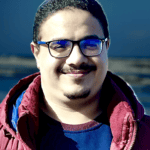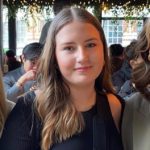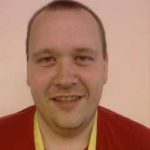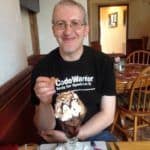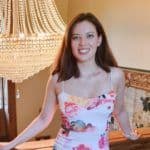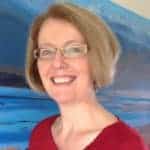Profile
Iain Tullis
-
About Me:
I make scientific instruments for cancer research.
I’ve worked on the mechanics, electronics and optics for multiphoton and fluorescence lifetime microscopes and on the reworking of a radiotherapy linac for cancer research.
I’m involved in research into a better way to deliver radiotherapy and I’m also involved in a study that uses a fluorescent marker, a bespoke imaging system and a robotic system for prostate surgery.
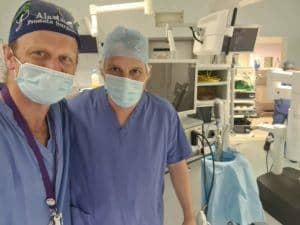
Some of our instruments end up in the operating theatre. Here I am with one of the surgeons
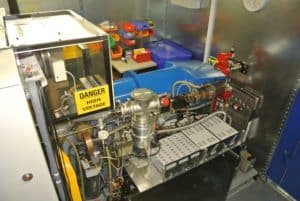
A view of our 6 MeV linac
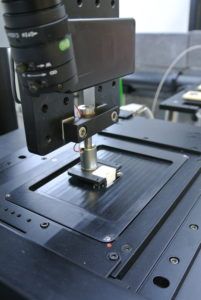
Close up on our cell handling system. Cells are irradiated and then robotically moved onto our microscope
My research involves taking things apart — and then reusing the parts as well as designing new parts to make something that someday will help cure cancer.
-
Read more
I live in Oxford but I’m from Canada. I’m rubbish at video games. My radio is tuned into BBC 6Music and when I was writing up my PhD I watched every episode of Quincy ME – it’s a show from the 1980s about a medical examiner in Los Angeles and was on late at night so I had it on quietly in the background so the silence wouldn’t spook me.
-
My pronouns are:
he/him
-
My Work:
I make scientific instruments for cancer research.
-
Read more
I need to have parts made – so the department has a mechanical workshop to make things.
We have computer controlled milling machines, a laser cutter and a 3d printer.
We build instruments that are usually controlled with a PC and that contains a variety of smaller computers and analog electronics, and often a camera. We design the circuit boards, have them made and then solder on the components. Then there is lots of testing and software writing. (Usually C and C++ but that’s not to say we don’t code in other languages for higher level processing)
And our linac in a bunker – here’s a video of the linac.
-
My Typical Day:
I cycle to work – my house in on the other side of Oxford from work and it is a 3.5 mile journey.
Most days I’m working on something I haven’t seen before and I need to quickly become expert on – there’s a lot of reading up on the subject.
Some days I spend wrangling parts into place – getting the workshop to machine parts and ordering parts and equipment. Once the pieces are all there – the fun of putting it all together can begin. Hopefully everything fits and it all works but to make sure there is a lot of testing.
Is this (part / machine / circuit / code) doing what I expected it to do?
I go to lunch in the canteen with the people who I work with and we catch up on the interesting stuff that the others in the group are doing.
-
Read more
Some Photos from Work

In an operating theatre with a surgeon.
The 6 MeV Linac
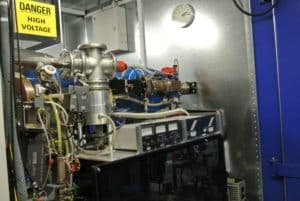
The 6 MeV electron linac is in a Faraday cage (you can see the silver coloured wall) to prevent electrical noise from the magnetron distubing the imaging system. The magnetron is from an airport radar and produces 2 MW pulses of rf power at 3 GHz. (This magnetron is about 2000 times more powerful than the one in a microwave oven)
There is a robotic handling system to place samples onto a microscope. The electron beam can damage the expensive microscope objective so it it separated from the beam by a lead wall.

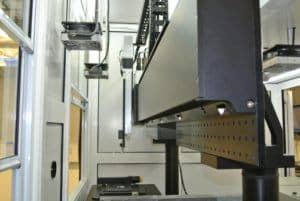
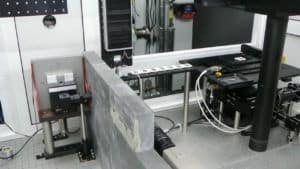
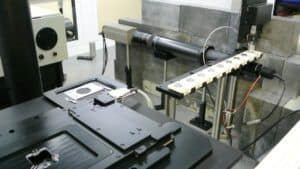
http://users.ox.ac.uk/~atdgroup/radiation_linac.shtml
Here are some odd things we have at work.
We have an old standard helium leak. It’s a calibration device for looking for leaks in vacuum systems and has slowly been leaking helium since 1962. I’m pretty sure it’s now out of calibration.
I worked at an institute that was decommissioning a Van de Graaff generator.
This one had a terminal voltage of 4 MV – here’s a photo of the terminal.
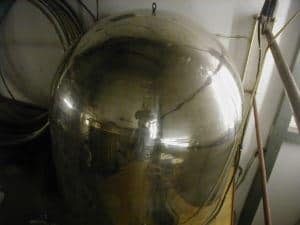
And a bit closer where you can see the damaged caused by sparks to the tank that surrounds it.
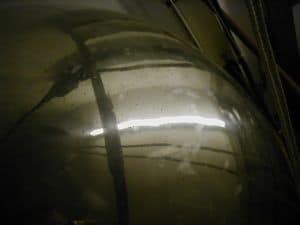
There is always a strange material in the lab – here’s some indium used for making cryogenic seals in vacuum systems
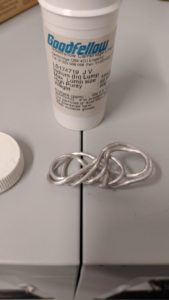
One of the microscopes that uses a UV laser to cause stripes of DNA damage to cells

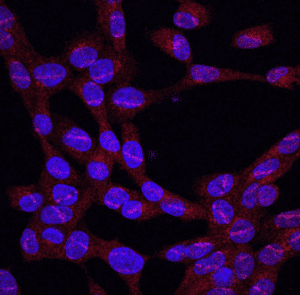
-
What I'd do with the prize money:
I’d design and build a fancy display to show an aspect of cancer research – I’m not sure exactly what it’s going to be but I’m thinking of an old fashioned electro-mechanical arcade machine, hopefully with some pinball action. I’d need the money for some materials (but I want to make it mostly out recycled scientific equipment) and workshop time.
-
Education:
I studied Applied Science at Queen’s University in Canada. This is an engineering program and I specialized in Electrical Engineering. The first year of the program was for all types of engineering so I studied subjects that I might not have taken – for example geology and chemistry.
After graduating I took a gap year and travelled — then I found a PhD position at Loughborough University where I studied in the Mechanical Engineering Department. I worked on developing an optical non-contact method to measure torque.
I was then a post-doc at UCL where I worked on measuring the oxygen saturation of blood in the brain.
After that I was a post-doc at Cornell working on multiphoton microscopy.
-
Qualifications:
I didn’t do GCSEs or A levels as I was at high school in Canada. I stayed in high school in the stream for people interested in going to university.
-
Work History:
I’ve written software for Apple ][ computers and worked for an insurance broker in the City of London.
-
Employer:
Department of Oncology, University of Oxford
-
My Interview
-
How would you describe yourself in 3 words?
a curious engineer
What did you want to be after you left school?
some sort of engineer. I wasn't sure what discipline.
Were you ever in trouble at school?
Nope.
Who is your favourite singer or band?
not sure. it's always changing. I'm usually listening something on 6music. The last show I saw was an Australian band - Sycco
What's your favourite food?
Montreal smoked meat sandwich.
If you had 3 wishes for yourself what would they be? - be honest!
3 more wishes.....
Tell us a joke.
Here's my three: What is blue and not very heavy? Light blue! or What do you get when you put spuds in a nuclear reactor? Fission chips! I met this cowboy with a brown paper hat, paper waistcoat and paper trousers. He was wanted for rustling.
-

